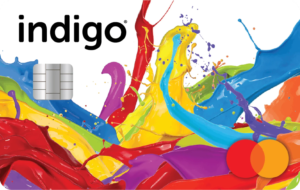What is an example of a health product?
The health and wellness industry is vast and encompasses a wide variety of products designed to improve, maintain, or restore health. These products range from pharmaceuticals and supplements to fitness equipment and natural remedies. Below, we delve deeply into examples of health products, providing comprehensive insights into their types, uses, and benefits.
What Defines a Health Product?
A healthcare product is any item formulated to enhance physical or mental well-being. These products may serve preventive, curative, or rehabilitative purposes and often align with medical or alternative therapies. Whether it’s a multivitamin or a fitness tracker, the ultimate goal is to improve health outcomes.
Examples of Common Healthcare Products
1. Nutritional Supplements
Nutritional supplements include vitamins, minerals, and herbal extracts that support overall health.
- Multivitamins: Designed to fill dietary gaps, they are essential for individuals with nutrient deficiencies.
- Omega-3 Fatty Acids: Promote cardiovascular health and cognitive function.
- Probiotics: Aid digestion and improve gut health.
- Protein Powders: Widely used in fitness and wellness to support muscle repair and growth.
2. Medical Devices
Medical devices range from simple tools to advanced machinery designed for health monitoring and treatment.
- Blood Pressure Monitors: Help individuals track hypertension and avoid complications.
- Glucose Meters: Vital for people with diabetes to monitor blood sugar levels.
- Fitness Trackers: Measure physical activity, heart rate, and sleep patterns, encouraging healthier lifestyles.
- Nebulizers: Deliver medication effectively for respiratory conditions like asthma.
3. Over-the-Counter (OTC) Medications
These are non-prescription drugs that treat common ailments such as:
- Pain Relievers: Examples include acetaminophen and ibuprofen for managing mild to moderate pain.
- Antihistamines: Useful for allergy relief.
- Antacids: Help with acid reflux and indigestion.
- Cough Syrups: Soothe throat irritation and suppress coughing.
Emerging Categories of Health Products
1. Digital Health Tools
With advancements in technology, digital health products have become increasingly popular:
- Mobile Health Apps: Track fitness, monitor symptoms, or offer telehealth consultations.
- Wearable Devices: Include smartwatches that monitor blood oxygen levels and EKG readings.
- Telemedicine Platforms: Provide access to healthcare professionals remotely.
2. Organic and Natural Health Products
Consumers are increasingly leaning toward natural options for health maintenance.
- Herbal Teas: Chamomile for relaxation, peppermint for digestion.
- Essential Oils: Lavender for stress relief, eucalyptus for respiratory health.
- Superfoods: Products like chia seeds, spirulina, and turmeric offer numerous health benefits.
Specialized Health Products for Targeted Needs
1. Women’s Health Products
Specific health products are designed for women’s unique biological needs:
- Prenatal Vitamins: Support the health of both mother and child during pregnancy.
- Menstrual Health Products: Include sanitary pads, tampons, and menstrual cups.
- Hormonal Balance Supplements: Help alleviate symptoms of menopause or PCOS.
2. Men’s Health Products
Men also have specific needs addressed by tailored products:
- Testosterone Boosters: For improved energy, mood, and muscle growth.
- Prostate Health Supplements: Saw palmetto and zinc are common ingredients.
- Hair Loss Treatments: Include minoxidil-based solutions to combat male pattern baldness.
3. Pediatric Health Products
Children require specially formulated products to suit their growing needs:
- Pediatric Multivitamins: Provide essential nutrients for growth and development.
- Baby Care Products: Include mild shampoos, lotions, and diaper creams.
- Vaccines: Protect against life-threatening diseases.
Choosing the Right Health Product
Selecting the right health product requires careful consideration of:
- Individual Needs: Tailor choices to specific health goals or medical conditions.
- Quality Assurance: Look for certifications from reputable organizations.
- Consultation with Healthcare Professionals: Always seek expert advice when in doubt.
Understanding Health Products
Health products are not limited to medicines or clinical equipment. They include a broad spectrum of items that promote physical, mental, and emotional well-being. These products can be categorized based on their purpose, such as preventive care, treatment, recovery, or lifestyle enhancement.
The Role of Emerging Health Trends
The health industry continually evolves, introducing innovative products that cater to specific needs and improve accessibility.
1. Plant-Based and Vegan Products
With the rise in plant-based lifestyles, the market now offers:
- Plant-Based Protein Powders: Alternatives to whey or casein for vegans.
- Meat Substitutes: Products like tofu, tempeh, and jackfruit cater to protein needs.
2. Sustainable Health Products
Eco-conscious consumers are driving demand for sustainable health items:
- Bamboo Toothbrushes: Reduce plastic waste.
- Reusable Sanitary Products: Such as menstrual cups or cloth pads.
- Compostable Packaging: For supplements or organic foods.
3. Digital Health Innovations
The digital revolution has enhanced healthcare monitoring and accessibility through:
- AI-Powered Diagnostics: Apps or platforms that analyze symptoms and provide potential diagnoses.
- Virtual Reality for Therapy: Used in pain management or exposure therapy for anxiety.
- Personalized Health Dashboards: Combine wearable data with actionable insights.













Post Comment